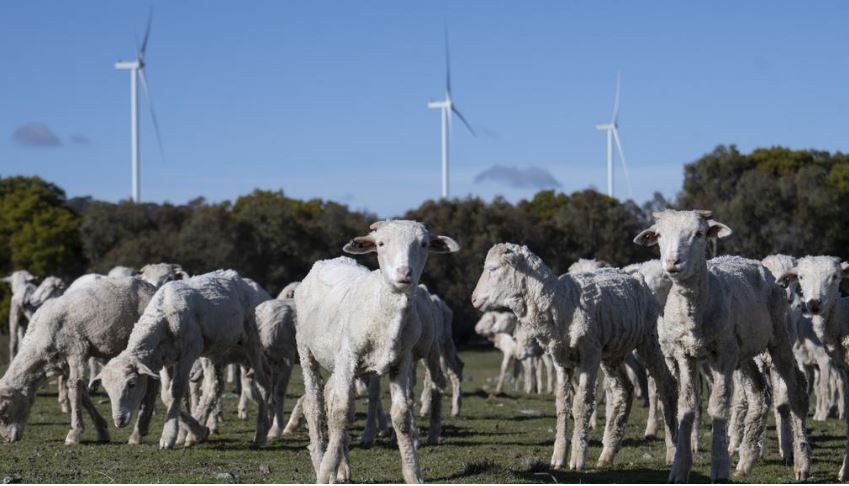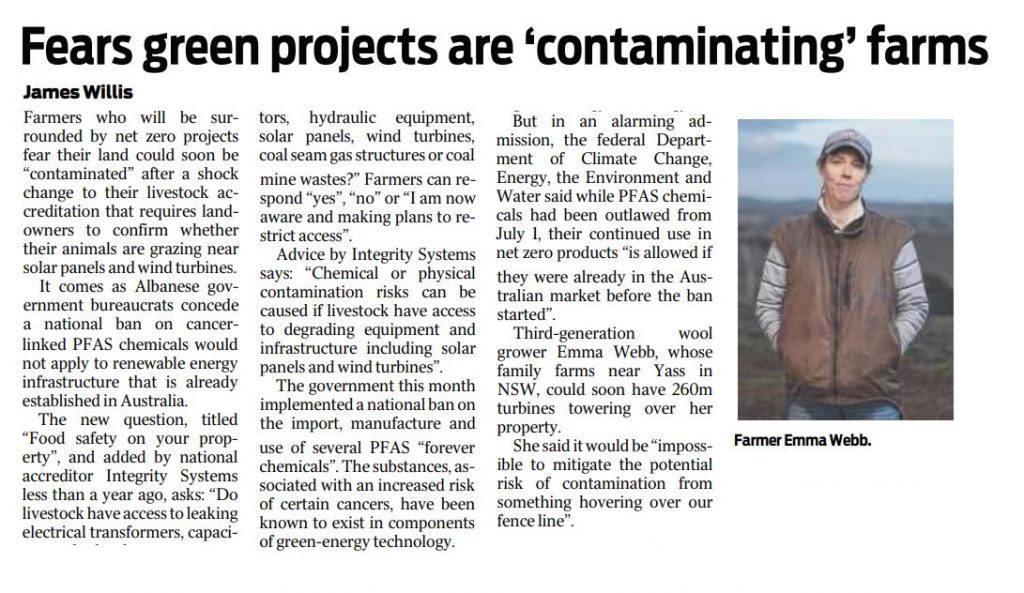Article by James Willis, courtesy of The Advertiser
30.07.2025
Farmers who will be surrounded by incoming net zero projects fear their land could soon be “contaminated” following a shock change to their livestock accreditation that requires landowners to confirm whether their animals are grazing near solar panels and wind turbines.
It comes as Albanese government bureaucrats concede a national ban on cancer-linked PFAS chemicals would not apply to renewable energy infrastructure that is already established in Australia.
The new question, titled “Food safety on your property”, and added by national accreditor Integrity Systems fewer than 12 months ago, asks: “Do livestock have access to leaking electrical transformers, capacitors, hydraulic equipment, solar panels, wind turbines, coal seam gas structures or coal mine wastes?” Farmers can respond “yes”, “no” or “I am now aware and making plans to restrict access”.
Further advice provided by Integrity Systems, which provides a valued “stamp of approval” in the $82bn red-meat industry, says “chemical or physical contamination risks can be caused if livestock have access to degrading equipment and infrastructure including solar panels and wind turbines”.
The government this month implemented a national ban on the import, manufacture and use of several PFAS “forever chemicals”. The substances, associated with an increased risk of certain cancers, have been known to exist in components of green-energy technology.
But in an alarming admission, the federal Department of Climate Change, Energy, the Environment and Water told The Daily Telegraph while PFAS chemicals had been outlawed from July 1, their continued use in net zero products “is allowed if they were already in the Australian market before the ban started”.

Third generation wool grower Emma Webb, whose family farms near Yass, could soon have 260m turbines towering over her property.
She said it would be “impossible to mitigate the potential risk of contamination from something hovering over our fence line”. “The national livestock accreditation provided by Integrity Systems is about maintaining our food safety reputation worldwide,” she told The Daily Telegraph.
“We need to understand if these projects could potentially have an impact on the foods we eat.”

